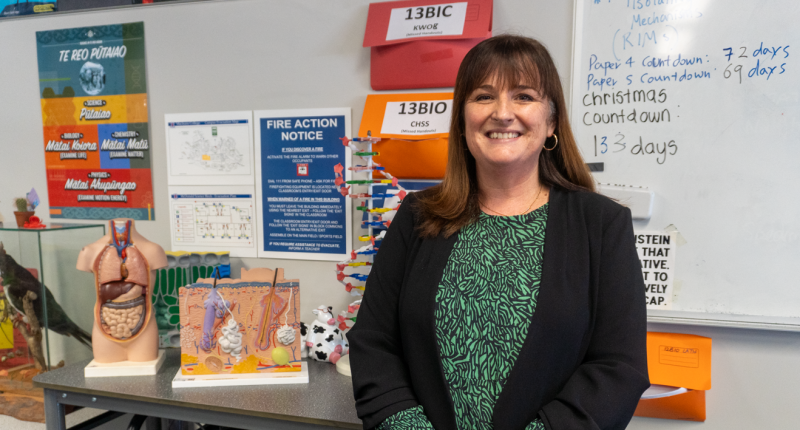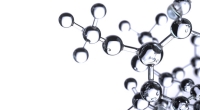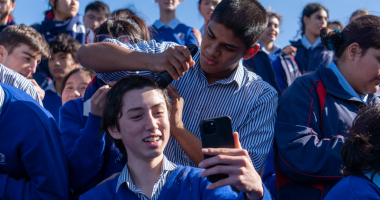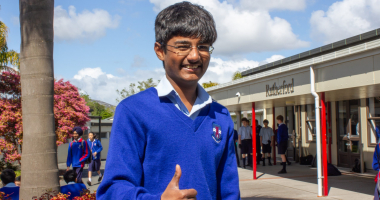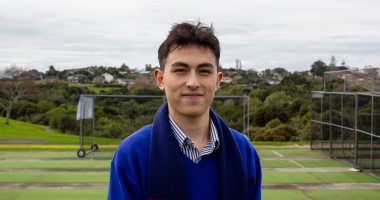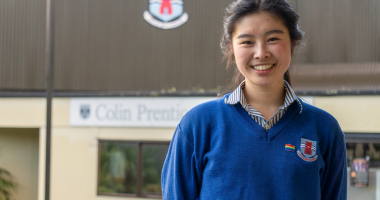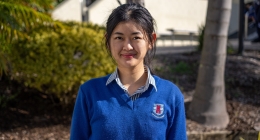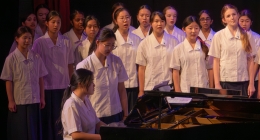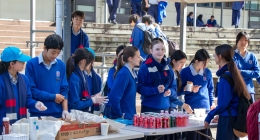We’re back again with another teacher feature! This interview features Mrs Allport who teaches year 10 Science, Level 2 Biology and A Level Biology.
She was given ten questions about herself and her role as a teacher at Macleans. Below are her insightful answers that are sure to make you smile (especially if you’re in Kupe).
1. Do you have a favourite colour and if yes, what is it? BONUS question: If someone challenged you to a duel over your favourite colour, what would you argue to defend your opinion?
Yellow. I am Kupe for life and you can’t argue with that.
2. Was Biology the first subject you fell in love with?
My relationship with Biology was definitely NOT a case of love at first sight. I didn’t even do Biology in Year 13 because I disliked it so much. I had one science lesson in Year 11 where I couldn’t see anything down the microscope, and I decided that Biology was ridiculous. History and English were the subjects I found most captivating and where I did best.
However, I reconnected with Biology at University, and then spent the first half of my career as a science writer, so I guess those English skills came in useful after all. It is only since I have been back at school as a teacher that I would actually say that I love Biology. So, it’s been a bit of a slow burn!
3. Why did you decide to become a teacher?
The money. (Just kidding). In truth, I’ve always felt like I belonged in a school. There is something about the learning environment, the collegiality, and the sense of purpose that brings me happiness. And I really enjoy being around young people – I like the questions that they ask, I appreciate the perspectives that they bring to all manner of issues, and I am inspired by their aspirations.
4. Hypothetically if you went to the Olympics, which event would you compete in?
Hypothetically, I would be a gymnast, with a particular aptitude for the uneven bars. Oh, what could have been if only I hadn’t failed my Grade 2 gymnastics exam…
5. If you could add any topic to the Biology curriculum what would it be and why?
The Biology curriculum is already fairly full, but I wouldn’t mind spending a week or two on cutting-edge developments. There are so many genuinely exciting things going on in Biology, Physiology and Medicine – I think that students would be really engaged by the very tangible applications of fundamental biological principles.
6. How do you feel about people calling Biology the “easiest” science and is there anything you would say in response?
I’d agree that Biology is undoubtedly easy if you have a phenomenal memory and superb literacy skills, don’t flinch at a bit of mathematics, can handle the odd existential crisis or two, and are able to focus a microscope (see above). The rest of us need to do some work in order to excel.
7. What do you love most about teaching?
The students and the stationery.
8. From your experience, what is one book/movie that you think every kid should read/watch before growing up?
In the words of Stephen King: “Books are a uniquely portable magic”. My recommendation is just that you read. And keep reading. It will make you a kinder, wiser and far more interesting person. I’ve read many excellent books, but I still stand by my childhood favourite – Anne of Green Gables – which has had an enduring influence on my life, even involving a pilgrimage to Prince Edward Island in Canada. I encourage you to find that story that will cause you to spend thousands of dollars on an overseas journey – it’s out there!
9. If you weren’t a Biology teacher, which subject would you teach?
Chemistry, History, English… not PE!
10. Finally, if you could go back in time, what is something you would tell your younger self that might apply to students at Macleans?
I’d say… “Do your best but you really don’t want to peak at high school! The future is vast – you will find your people; you will work out how to match your foundation to your skin colour; you will realise not everyone has to like you; and once you have started working, no one will ever ask you for your grades (even if you really want to tell them!). UV damage is real though.”
And with that great piece of advice, the interview comes to an end. If you’re currently a Biology student (or soon-to-be), I hope this inspired you. If not, maybe you can add Anne of Green Gables to your to-be-read list. Or simply let your take-away from this be that UV damage is real, so don’t forget to use that SPF.
23rd August, 2024
Written by Mrs Allport, edited by Hope Zhang
Photo by Joseph Zhang
